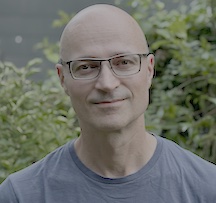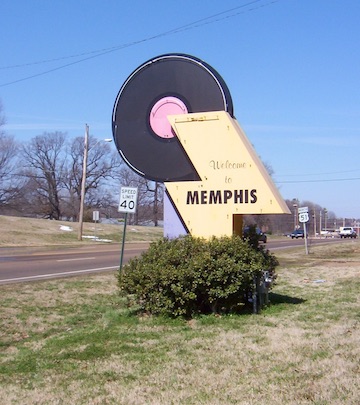‘Some Future Cave Dweller Will Find These Notes’ (1987)
Decades later, I still wonder where he is
Once, heading back to Memphis after Christmas break, I sat next to a boy my age on a connecting flight from Minneapolis. We acknowledged each other with a curt nod, buckled in, and sat back in silence. Around the time we reached cruising altitude and flight attendants took to the aisle, I noticed he had pulled out a Walkman cassette player and popped in state-of-the-art, in-ear headphones. I was impressed. I still had only the less expensive technology — wonky, foam earphones held together by a metal frame. The boy had also opened a book. I strained without turning my head to see what he was reading and was stunned to find a miracle: a tender sex scene between two young men in love skillfully rendered.

It hadn’t occurred to me that such scenes between men could be found in fiction. All I’d known of gay love and sex in print were the stapled, photocopy booklets of gay erotica an older friend had handed down to me. Those stories depicted improbable scenes utilizing bananas and chains and seemed to have more to do with calisthenics than desire or even doing it. Whether arousing or vexing, none of them were deftly structured or intimate. Good for a quick wank, and sometimes not.
So, the words on the pages of the book held open in the hands of the handsome stranger seated next to me came as a kind of thunderclap. I lost myself fully for the several minutes it took me to read the two pages. When I finished, I realized my neighbor hadn’t turned the page. I realized, too, that I was leaning toward his lap. I cast a sideways glance. I’d been caught.
“Looks like a good book,” I said, sitting up, my face red hot. “What is it?”
He flipped the book over so I could read its dust cover: The Lost Language of Cranes. A novel by David Leavitt. “Got it for Christmas!”
Cranes? A gay novel? For Christmas?
“I’ll find a copy.”
“Start with Family Dancing, his first book. It’s all short stories.”
All I knew of short stories were those I’d read in my high school English AP class—”The Tell-Tale Heart,” “The Lottery,” “The Gift of the Magi” — all straight and sexless. I liked short stories, but I had never heard of a gay short story, much less a collection of them. Would Leavitt’s short stories deliver?
“What’d you like about them?”
“The characters, their experiences, how they get by. Or don’t.”
Is a story ever more than that?
The flight attendants reached our row, pressing bags of peanuts into our hands, filling beverage orders. Somewhere over Minnesota or Iowa, we exchanged names.
“What are you listening to?”
“Ministry’s new one, Twitch.”
“Cool, I like Ministry,” I lied.
“Wanna listen?” He pulled the earphone from his left ear and extended it toward me.
His earphone in my ear made me feel warm and woozy. I liked being yoked to this beguiling stranger as we sat with our forearms touching. Beneath the armrest, his muscled thigh pressed into mine. I pressed back. Ministry’s industrial synth-pop never sounded better.
For the next hour, we listened and read together, mostly in silence. After landing, I asked if he lived in Memphis.
“Knoxville. I’m a sophomore at UT. You?”
“Memphis State. Second-semester freshman.”
I was disappointed. Knoxville was a whole six-hour drive away. I doubted I could make it that far in my old Ford Mustang. Nonetheless, I decided I’d ask for his phone number.
Our paths dovetailed a few minutes more. He walked toward his connecting gate and I toward baggage claim to find my aunt, who’d offered me a ride home. I was relieved that she’d not been standing at the gate when we emerged from the jet bridge. Then, just as I was working up the nerve to ask the UT sophomore for his number, I saw her beaming and pacing toward me. I slowed and stopped. For a moment, the boy and I stood and stared awkwardly at each other.
“My aunt,” I said, nodding in her direction. My nerve fizzled and fled.
We said a quick goodbye and parted. As my aunt threw her arms around me, I turned and watched him walk away.
“Who was that?” she asked, following my gaze.
“A friend.”
“A friend?” She looked quizzically at me and then toward the boy’s receding figure. “Did I cut y’all off?” she asked. “Wanna catch him — while you can?” It was a signal, an unexpected life preserver I could not yet choose to grab. Doing so would have meant exposure and no return during a time when young gay men were still being sent into conversion therapy, shunned by their families, and worse.
For several days after that flight, I was obsessed with finding him again. I called an operator in Knoxville but found no listing. Phonebooks and databases at the library yielded no information. It didn’t occur to me to place an ad. Where would I have done so, and would ‘Desperately Seeking Hot Collegiate Who Shared His Book and Headphone on Minneapolis Flight’ have yielded any result? I remained regretful and angry at myself for being afraid to ask for his number or to run after him. It had been so hard to meet and befriend any gay men my age. Opportunities came via chance, telegraphed by a glance and framed in silence or a few hedged words; connections and friendships began and faded in seconds, risk ever present. Eventually, when given the option to move to Knoxville, I chose to leave Tennessee permanently, for better or worse, and set out for the Pacific Northwest.
Now, it’s been almost 40 years since I forgot the boy’s name.
But thanks to him, I found copies of David Leavitt’s novel and short story collection at Davis-Kidd Booksellers in East Memphis the day after our flight. Still, it took another two years before I learned there were already many gay and lesbian novels in the world. That there were whole bookstores in other cities devoted exclusively to carrying them, as well as greeting cards and other memorabilia designed just for us.
Decades later, I still wonder where he is. What did he think of Leavitt’s novel? Had he already read books by Jean Genet, Rita Mae Brown, and Andrew Holleran? What about Baldwin’s Giovanni’s Room? Does he still listen to Ministry? What would have happened had I asked for his number?
I hold these unanswerable questions a little more gently today. And some part of me still sits at 35,000 feet reading a gay love story with a beautiful and generous stranger, listening to music on shared earphones, our plane’s shadow passing over the middle of a country that never meant for us to meet and thrive and last.
*Title from the lyrics of “Isle of Man – Version II” by Ministry, Twitch, 1986
Copyright © 2025 by Denver David Robinson. All rights reserved.

Denver David Robinson’s work has appeared in Buckman Journal, Vice, Christian Science Monitor, Reunion: The Dallas Review, and elsewhere. He has received an Oregon Literary Fellowship in Nonfiction, GLAAD’s Outstanding Digital Journalism – Multimedia Award, and the Richard J. Margolis Award for nonfiction writers of social justice. A native of Memphis, he lives in Portland, Oregon.


